The Boeing 707 was the first successful jet powered airliner. It first flew in 1957 and was enormously successful with airlines all over the world in the 1950s and 1960s. Intended to perform the medium to long-haul flights, previously done by propeller-powered aircraft. First conceived to fill a USAF requirement for a 4-engine aerial tanker plane, and the prototype was unveiled in 1954, the aircraft that would eventually become the 707 we all know and love. The 707 had a profound impact on aviation, and served as the basis for the 727, and 737, with many technologies and design elements re-used in those aircraft that were taken from the 707.
One such airline to operate the 707 was Avianca. They operated 9 707s, (1 to the -100 standard, 8 to the -300 standard), and 7 720Bs (The Boeing 720 was a much-shortened version of the 707). They operated their 707 fleet between 1960 and 1998, which by that point, the 707 was very much showing it’s age (For reference, the 737-800 first flew in 1997).
This particular aircraft holds a dubious place in Avianca’s history. On the night of January 25th, 1990, this particular aircraft, registration HK-2016, operating as Avianca flight AVA052, crashed while trying to land a New York John F Kennedy international Airport. Originating the Columbian capital of Bogota, with stopover in Medellín, before continuing onto New York. The aircraft ran out of fuel on final approach, after being put in repeated holds en route, and being forced to perform a go around, after there first landing attempt was foiled by windshear, as the weather in New York was abysmal. In crashed down in the small community of Cove Neck, on Long Island, killing 73 of the 158 people onboard. Debate lingers to this day about what portion of blame is each party deserves, my personal opinion is that the crash was a mixture of pilot error, ATC error, bad timing, bad weather, pilot fatigue, and management deficiencies.
Notes:
AG-1: Reverse thrust (Use Brake to deploy)
AG-2: Speedbrakes/Spoiler Arm (Use Brake to deploy Spoilers)
AG-3: Landing Lights
AG-4: Taxi Lights
AG-5: Anti-Collison Strobes
AG-6: Logo Light
AG-7: Strobe Lights
AG-8: Navigation Lights
Specifications
Spotlights
- Mal0ne 1.6 years ago
- 929 2.2 years ago
- DARZAVIATION 2.2 years ago
- Anguirus380 2.2 years ago
- Poyston001 2.2 years ago
- Transair56 2.2 years ago
- XProAerospaceAircrafts 2.2 years ago
General Characteristics
- Successors 2 airplane(s) +3 bonus
- Created On Windows
- Wingspan 69.3ft (21.1m)
- Length 70.2ft (21.4m)
- Height 20.0ft (6.1m)
- Empty Weight N/A
- Loaded Weight 55,255lbs (25,063kg)
Performance
- Power/Weight Ratio 1.952
- Wing Loading 13.8lbs/ft2 (67.5kg/m2)
- Wing Area 3,998.8ft2 (371.5m2)
- Drag Points 14314
Parts
- Number of Parts 419
- Control Surfaces 11
- Performance Cost 1,736

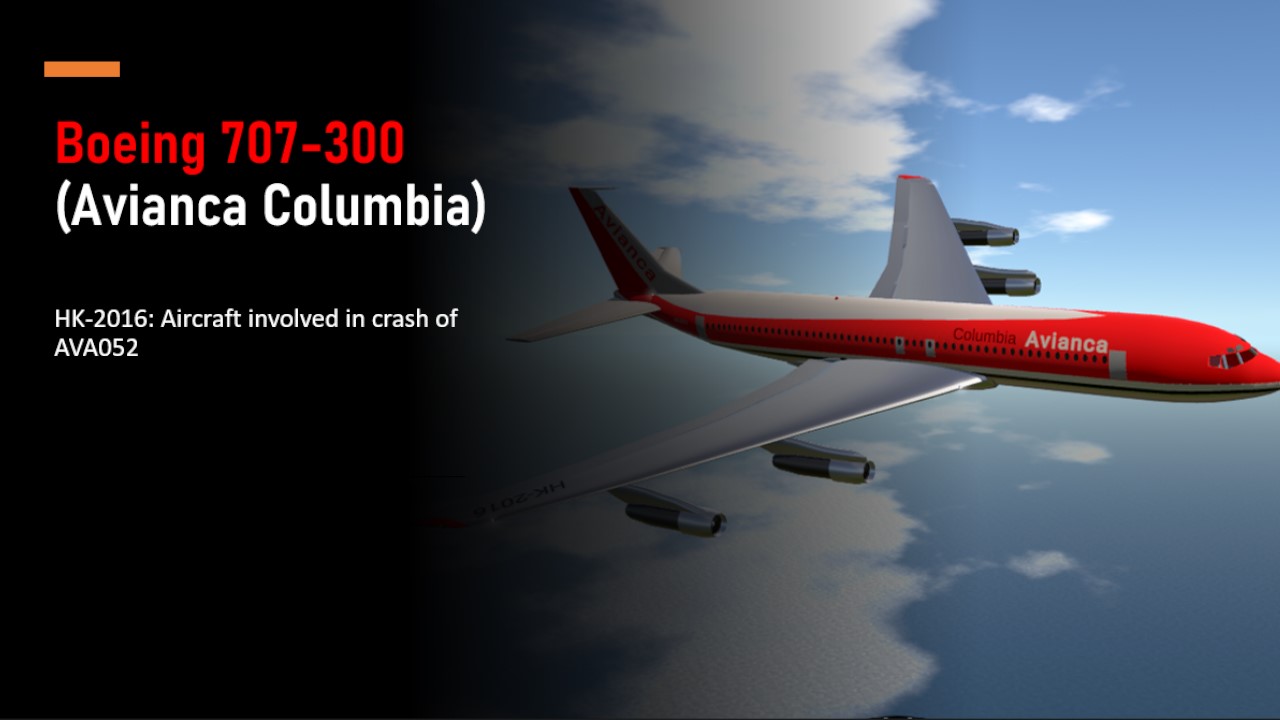
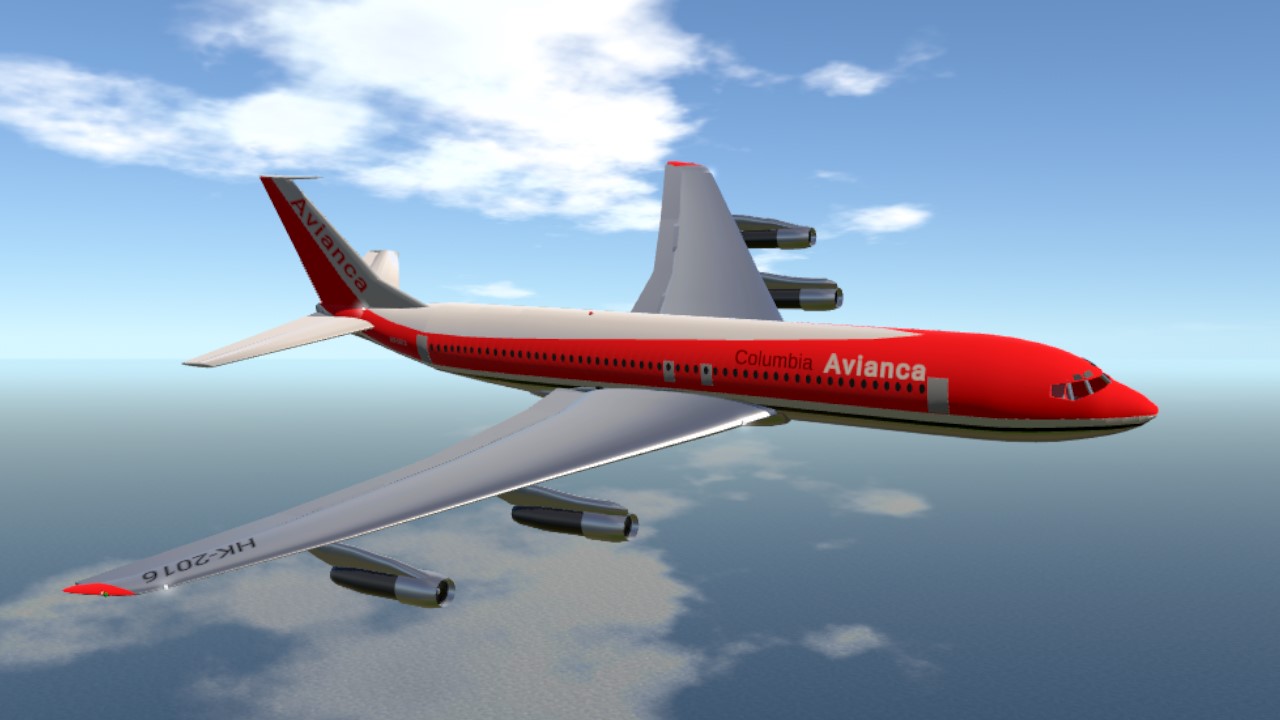
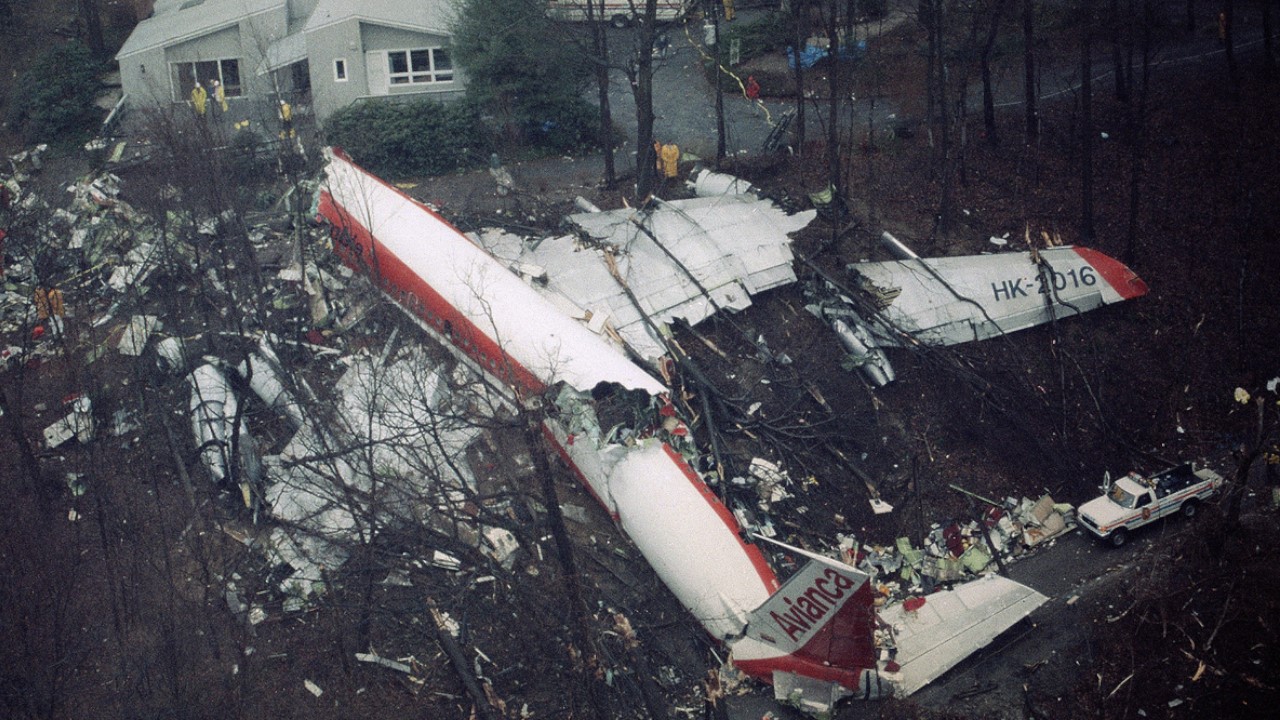
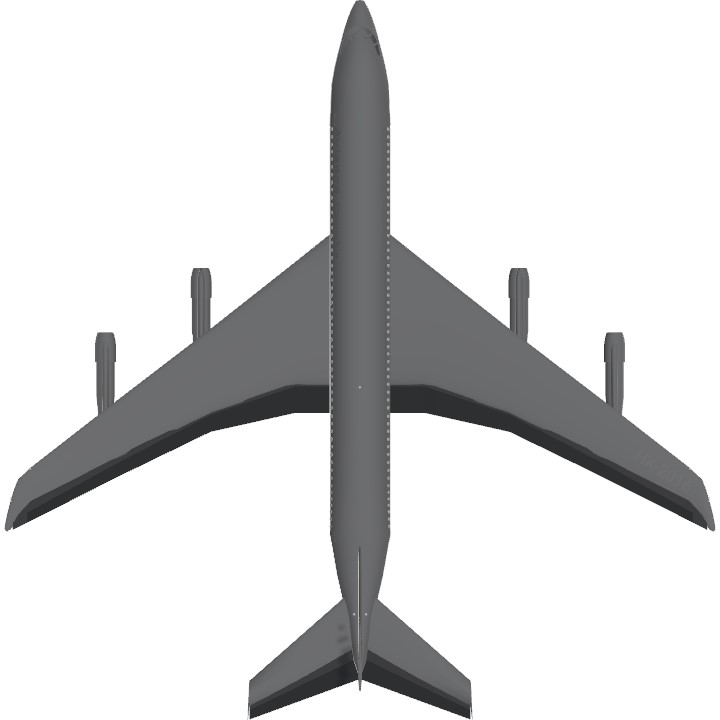
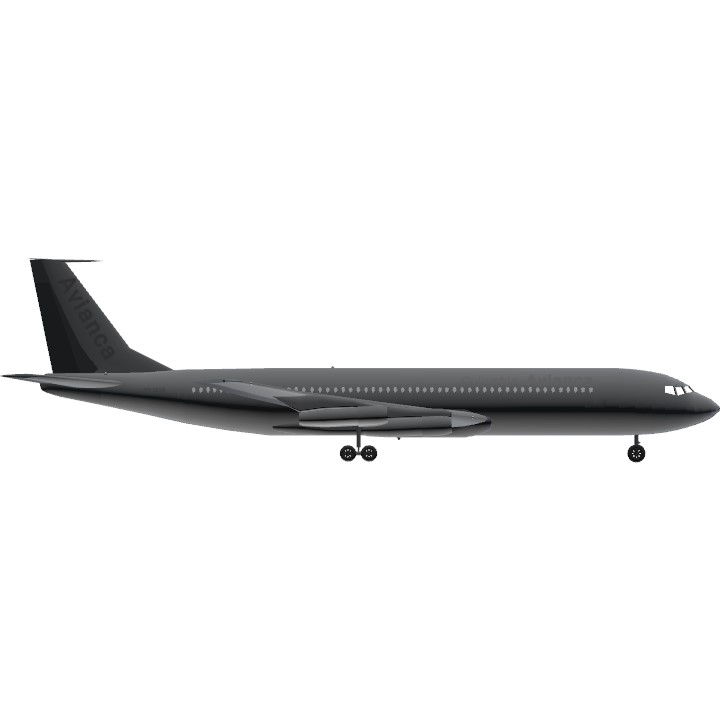
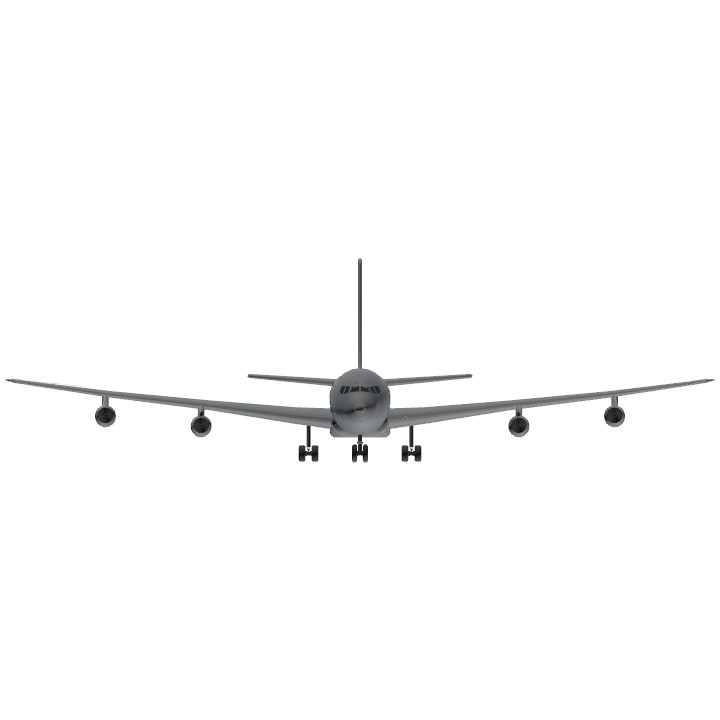
@Theconcorde2342 Yes, this has already been brought to my attention, click the link for the corrected name
@sch2332 it's actually Colombia 🇨🇴
好是好,就是太小了
@sutarto1 Hi
hello
@JJsimple "ok"
@ZacOnTrack it has a poor Pitch manoeuverability, and ailerons that are too effective.
Just saying that for your future builds.
@SilverStar Wdym?
Looks good, but flying is a bit weird.
It hurts me to see Colombia spelled Columbia, fix pls
@JJsimple 💀
@JJsimple "Avianca 052 radar contact lost"
uh oh i ran out of fuel💀
Nicely done!